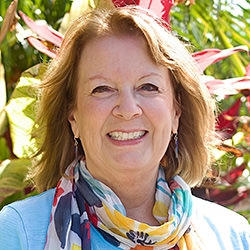
Search Results: autonomy
-
Could our "need for autonomy" be getting in the way of "partnership consciousness" (as NVC is sometimes called). Could "autonomy" also block healthy relationships with not only ourselves and with others, but also with the planet? This article invites us to consider how "autonomy" may colour our NVC practice at the peril of our critical values. Values such as our care for impact, shared responsibility, interdependence, compassion, consideration, and more...
-
Part of making your relationship a priority while maintaining autonomy means you consider the impact your actions may have on your relationship and look to negotiate ways all needs can be honored. To do this while not losing yourself, practice writing down your needs and guessing their needs beforehand. Make an upfront request to create a shared understanding about what’s most important, before discussing strategies or decisions.
-
-
This chart is intended as an aid to translating words that are often confused with feelings. These words imply that someone is doing something to you and generally connote wrongness or blame. To use this list, when somebody says “I’m feeling rejected,” you might translate this as: “Are you feeling scared because you have a need for inclusion?”
-
Trainer Tip: Autonomy is not a need, but rather a way of living. We always have choices in life, even if none of them appeal to us. Becoming aware of our choices and taking responsibility for them leads to greater joy and empowerment.
-
No one likes demands. Do you want to have access to choice when requests or demands come your way? Join CNVC Certified Trainer Arnina Kashtan as she provides tools to free yourself from the submit/rebel dynamic.
-
Healthy differentiation is key to personal growth, learning and thriving relationships. When healthy differentiation is present, you can discern what's true for you and what you are and aren't responsible for in an interaction, and can be fully who you are in the presence of others. There are a number of ways you can become aware of and cultivate healthy differentiation. Let’s look at two here: self-connection and autonomy.
-
In this prerecorded telecourse, Kelly uses humor, stories and practical ideas to help spouses, lovers, friends and parents discover how freedom and autonomy are the basis for all healthy relationships.
-
Join CNVC Certified Trainer Arnina Kashtan as explores interdependence, autonomy, valuing self and others, and power-sharing in your relationships. Free yourself to honor your longing for community, belonging, and love.
-
Trainer tip: NVC consciousness recognizes interdependence. In this process each person is autonomous; everyone's needs matter; people have choice and responsibility for their actions; there's abundance, and a valuing of coming together. The dependence / independence paradigm assumes we either need someone else to be whole -- or we don’t need others at all. Commit to living autonomously. Notice where you struggle with this.
-
Differentiation is being who you are in the presence of who they are. Its a process of connecting to and honoring your own experience, acting in integrity with your values, and engaging in collaboration with others to meet needs. If you're happier when you are not in an intimate relationship you may have developed your individuality but likely have difficulty with differentiation. Learn core skills and behaviors that support differentiation.
-
Most reactivity in intimate relationships comes from a lack of confidence in maintaining intimacy, autonomy, or security. What may help is naming what's happening, interrupting shame, and anchoring or reassuring yourself. You can also reflect on the effects of acting from reactivity. Knowing what helps center you, ask your partner to do or say specific things that might help. Read on for more.
-
Often, honoring someone’s choice supports more connection. Thus, checking in with someone’s choice to listen or not (offering autonomy) sets the stage for being heard more fully. On the other hand, when someone has the perception that you are talking to them without considering their choice, resentful listening might result. Here are ways to mindfully check in about choiceful listening before starting a conversation.
-
Differentiation means you can access both autonomy and intimacy in relationships. When you're unafraid to lose yourself or be controlled, you can feel deeply connected and affected, while standing strong in yourself. Differentiation also means ability to tolerate disharmony and differences, self-soothe, offer compassion, and set boundaries. Here, we'll focus on setting boundaries with monitoring eye contact and physical interaction, and interrupt our "helping".
-
Jim and Jori offer a tip to stay present in the face of our reactivity to witnessed conflict.
-
NVC practice is based on several key assumptions and intentions. When we live based on these assumptions and intentions, self-connection and connection with others become increasingly possible and easy, helping us contribute to a world where everyone’s needs are attended to peacefully.
-
Trainer Tip: Wanting collaboration? Show you value the other person's needs as much as your own. After you both feel heard, you can make joint decisions about specifics of the agreement, such as "division of work", "scope of project", "when the action will take place", "how it'll be done" and "timing of follow up to see how things went". Read on for an example of how this is applied to asking someone to pitch in with doing chores.
-
When deciding if someone crossed your boundaries and how to respond, you may get conflicting opinions on it. These opinions can be coarse attempts to manage life with rules about what should(n’t) happen. Instead, so that you can find where you want to invest your energy, ask yourself questions that reveal what for you is truly in integrity, nourishing, connects to your heart, and deepens self understanding. Read on for examples.
-
Trainer Tip: When in a conflict that doesn’t seem to have a solution being aware of your needs, and then being creative and flexible about getting them met, can go a long way to coming up with creative solutions that work for everyone.
-
- Transform and heal developmental trauma
- Reclaim the parts of yourself that have been left behind
- Discover the difference between developmental trauma and PTSD
- Reawaken your heart to love




















